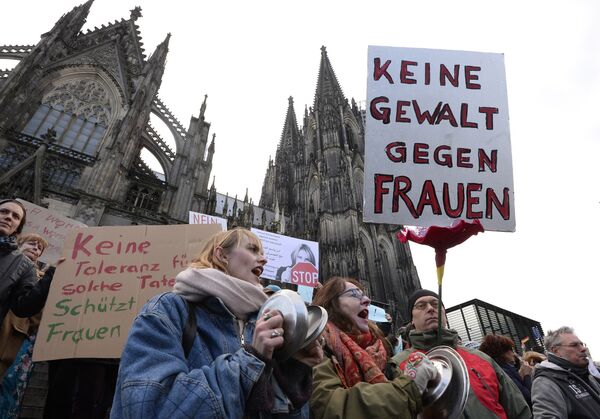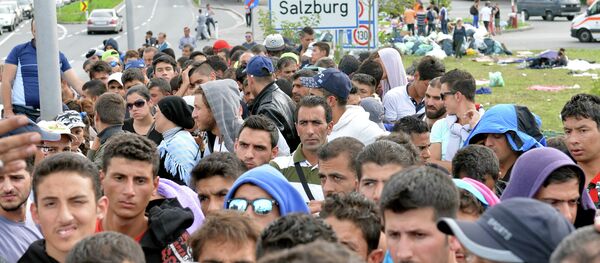The newspaper recalled that earlier, more than 7,000 Ukrainians had applied for asylum in Germany due to the armed conflict in eastern Ukraine.
"In recent weeks, many of them received notifications of refusal. They entered Germany using Schengen visas, which, in turn, are subject to the Dublin agreement. Their applications should be considered by those EU countries which issued the visas," the newspaper said.
According to Frankfurter Rundschau, a positive decision on asylum was made with respect to only 5.3 percent of the requests, with every refusal accompanied by a requirement to leave the country.

The newspaper also recalled that politicians from Germany's ruling Christian Democratic Party (CDU) demanded last week that Berlin should recognize Ukraine as a "safe country of origin".
"Already now, Ukrainian asylum seekers are very seldom being recognized as refugees on German territory," Frankfurter Rundschau said.
German laws currently allow for migrants to be sent back to their countries of origin if they have been convicted of a crime that carries a prison sentence of three or more years, and only when the situation in their country of origin is deemed safe for them to go back.
Ok this is weird. In the morning I asked what was happening in Germany with the refugee crisis. Twitter replaced "refugee" with "human"
— Prof. Nick Flor ♫ (@ProfessorF) 12 января 2016
German Interior Minister Thomas de Maiziere said last week that the government wanted to ease deportation barriers in cases where asylum seekers are jailed for violent crimes like bodily harm, homicide, rape, and sexual assault. The German government came under pressure over its open-door policy toward refugees after a series of sex attacks on women by mostly Middle Eastern asylum seekers hit German cities on New Year’s Eve.
According to the German news network Deutsche Welle, in 2014, the number of asylum applications filed by Ukrainians stood at 2,703; in 2015, the figure increased to about 4,440. However, this number is relatively minuscule: according to International Business Times, a total of 1.1 million people were registered as asylum-seekers in Germany in 2015, most of them from war-torn countries such as Syria, Libya and Iraq.
Many young Syrian men have travelled abroad simply to avoid being drafted into the army; this is part of the reason Europeans have often characterized the refugees as being primarily young adult men.
According to The Guardian, hundreds of thousands of Ukrainians have successfully sought refuge in Russia since the Donbass conflict erupted following the overthrow of former president Viktor Yanukovych in February, 2014.




